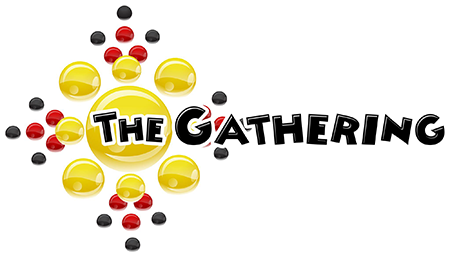by Bob Adams
Managing a team is a job with a perpetual preoccupation: the manager can never be free to forget the work, never has the pleasure of knowing, even temporarily, that there is nothing left to do.
– Henry Mintzberg
To serve as a church staff member, be it a single-staff position in a small church or a role in a multi-staffed megachurch means you are a manager.
Not a leader, though that is true as well.
You are a manager, and there is a difference. As author Henry Mintzberg writes, “By the excessive promotion of leadership, we demote everyone else. We create clusters of followers who have to be driven to perform, instead of leveraging the natural propensity of people to cooperate in communities.”
Becoming a manager of effective ministry teams is as simple as A, B, C, and A is for “Adjust your management style.”
THE QUICK SUMMARY – High Output Management by Andrew Grove
The essential skill of creating and maintaining new businesses—the art of the entrepreneur—can be summed up in a single word: managing.
Born of Grove’s experiences at one of America’s leading technology companies, High Output Management is equally appropriate for sales managers, accountants, consultants, and teachers, as well as CEOs and startup founders. Grove covers techniques for creating highly productive teams, demonstrating methods of motivation that lead to peak performance—throughout, High Output Management is a practical handbook for navigating real-life business scenarios and a powerful management manifesto with the ability to revolutionize the way we work.
A SIMPLE SOLUTION
As the leader of a team, or the leader of leaders of teams, it is only natural that you want to lead them in a way that delivers the best output possible. On the other hand, you have many other tasks at hand as a leader.
If you want to approach this particular task in the most efficient manner possible, is there a single best management style, one approach that will work better than all the others?
Like the pursuit of almost any discipline, the answer is “no.” There simply is no one style of leadership that is better than another.
The secret is you must learn to adjust your management style, not just manage the same way for everyone.
The output of a manager is the output of the organizational units under his or her supervision or influence.
The question then becomes, “What can managers do to increase the output of their teams?” Put another way, what specifically should they be doing during the day when a virtually limitless number of possible tasks calls for their attention?
To give you a way to answer that question, I would like to introduce the concept of the task-relevant maturity (TRM) of your subordinates. The TRM is a combination of the degree of their achievement orientation and readiness to take responsibility, as well as their education, training, and experience.
The conclusion is that varying management styles are needed as task-relevant maturity varies. Specifically, when the TRM is low, the most effective approach is one that offers very precise and detailed instructions, wherein the supervisor tells the subordinate what needs to be done, when, and how: in other words, a highly structured approach. As the TRM of the subordinate grows, the most effective style moves from the structured to one more given to communication, emotional support, and encouragements, in which the manager pays more attention to the subordinate as an individual than to the task at hand. As the TRM becomes even greater, the effective management style changes again. Here the manager’s involvement should be kept to a minimum, and should primarily consist of making sure that the objectives toward which the subordinate is working are mutually agreed upon.
Here’s a summary:
Task Relevant Maturity of Subordinate Characteristics of the
Effective Management Style
Low Structured; task-oriented; tell “what,” “when,” and “how”
Medium Individual-oriented; emphasis on two-way communication, support, and mutual reasoning
High Involvement by manager minimal; establishing objectives and monitoring
Managers must regard any management mode not as either good or bad but rather as effective or ineffective, given the TRM of our subordinates within a specific working environment. This is why researchers cannot find the single best way for a manager to work. It changes day-by-day and sometimes hour-by-hour.
-Andrew Grove
A NEXT STEP
Because a person’s TRM depends on a specific working environment, when the environment changes, so will his TRM as will his supervisor’s most effective management style.
In order for you to learn to understand and adapt the concept of TRM to your team, you need to fully understand and apply these concepts on a regular basis.
Block off two hours in your schedule to begin working on TRM concepts for your team. First, reproduce the summary table listed above on a chart tablet.
Next, for the most common environments of your team, write in their names alongside one of the three designations of “low,” “medium,” or “high.” Remember, you are not labeling their TRM as either good or bad, but rather as effective or ineffective.
Transfer the designations and names to another chart tablet, writing them along the left side. For each person, write at least two actions you will take to help move from their current state to the next level. If they are at the “high” designation already, write actions that will help them move to the next level beyond their current assignment.
Schedule this activity into your calendar once per quarter.






